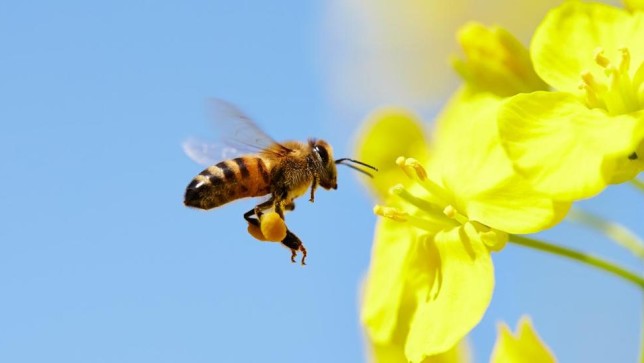On Monday, the United States Environmental Protection Agency (EPA) announced the final notices of cancellation on the registration of 12 neonicotinoid pesticides in the Federal Register. The decision to pull the pesticides from the market was required as part of a legal settlement in December 2018 of a successful Center for Food Safety (CFS) case—litigated from 2013-2018 on behalf of a coalition of conservationists and beekeepers—over the agency’s failure to protect pollinators, beekeepers, and endangered species from these dangerous pesticides.

The second half of the settlement will play out in coming years: EPA is required, for the first time ever, to analyze and address the impacts of the entire neonicotinoid pesticide class on endangered species under the Endangered Species Act.
“Today’s cancellation of these neonicotinoid pesticides is a hard-won battle and landmark step in the right direction,” said George Kimbrell, CFS Legal Director and lead counsel in the case. “But the war on toxics continues: We will continue to fight vigilantly to protect our planet, bees, and the environment from these and similar dangerous toxins.”
The cancelled pesticides in the settlement are a relatively new class of pesticides known as neonicotinoid pesticides or “neonics.” Chemically-related to nicotine, these neonics interfere with the nervous system of insects, causing tremors, paralysis, and eventual death even when administered at very low doses. Unlike traditional pesticides, neonics are systemic—meaning they are distributed throughout the plant and make the entire plant toxic. Bees and other pollinators are exposed to these toxic chemicals through pollen, nectar, dust, dew droplets on plant leaves, and in the soil where many native bee species nest. These neonics came into heavy use in the mid-2000s at the same time beekeepers started observing widespread cases of colony losses.
“Neonics represent an enormous threat to our bees and pollinators,” said Neil Carmen, pollinator liaison for The Sierra Club, a plaintiff in the case. “Taking these products off the market is absolutely necessary.”
Neonics are 10,000 times more toxic to bees than any other pesticide. They are typically applied as a seed coating, a process by which agrichemicals are mixed together with large batches of seeds in order to coat them before the seeds are planted. After neonic-coated seeds are planted, the chemicals spread far beyond the crop they are intended for and can contaminate nearby wildflowers, soil, and water—all of which pose significant threats to bees foraging and nesting in the area. It has been known for several years that these chemicals can kill or weaken more than just the targeted pests. Non-target harm can occur to beneficial invertebrates, as well as to birds and other wildlife, through both direct and indirect effects.
The CFS case was originally filed in 2013. In May 2017, the Court ruled in Plaintiffs’ favor. Represented by CFS legal counsel, the plaintiffs included CFS, Sierra Club, Beyond Pesticides, Center for Environmental Health, Pesticide Action Network, and four commercial beekeepers, Steve Ellis, Jim Doan, Tom Theobald, and Bill Rhodes.
Background
The European Union has banned three neonic pesticides from being used on crop fields after the European Food Safety Authority expressed concern about the harms neonics pose to pollinators. France has also banned the use of two additional neonic pesticides in both crop fields and in greenhouses. In 2017, CFS filed another legal action against EPA demanding that neonic-coated seeds no longer escape regulation. In 2018, CFS filed a notice of intent to sue the Trump administration for reversing a moratorium on neonic pesticides and genetically-engineered crops in wildlife refuges. CFS recently endorsed the Protect our Refuges Act of 2019, which would reinstate the moratorium on wildlife refuges, and supports the Save America’s Pollinator’s Act, which would require EPA to take immediate action to protect pollinators from neonics. CFS is also petitioning the State of California to protect four species of bumblebees by adding them to the state’s Endangered Species List. CFS just launched a free Wild Bee ID app that empowers gardeners to take an active role in bee conservation by identifying the bees in their backyards that are native to North America and the plants those native bees have evolved to pollinate.




















What practical immediate effect will this decision make in our attempts to reduce use of the neonicotinoids ? Is this a decision that can be revoked or nullified by president Trump ?